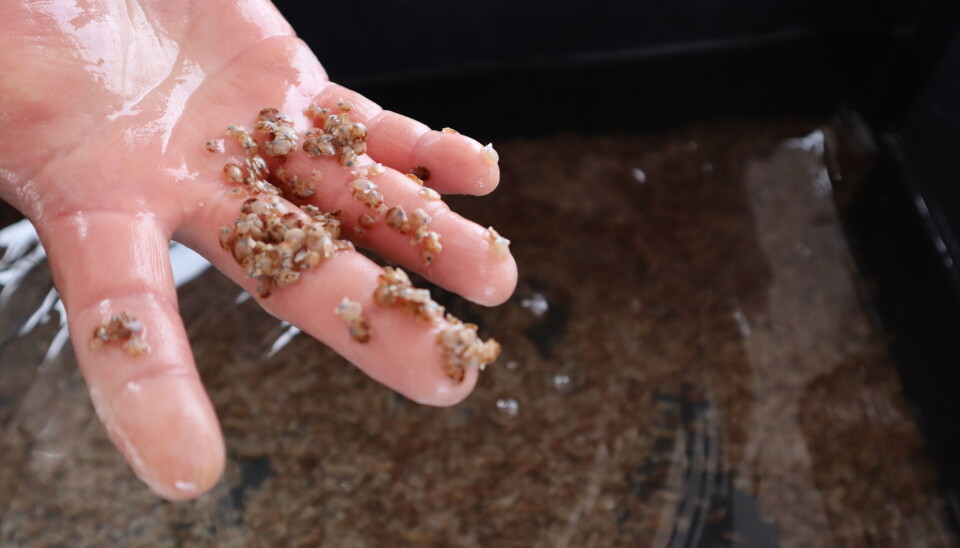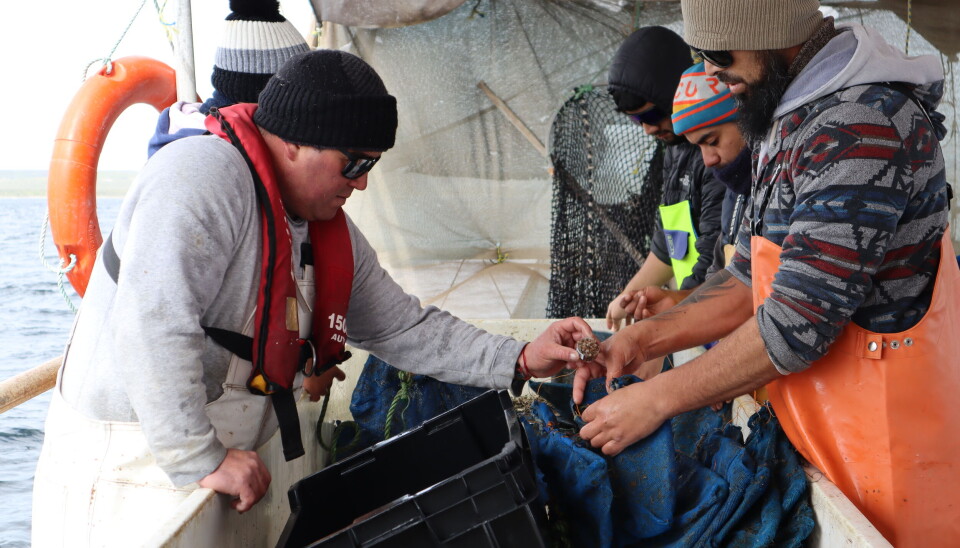
Successful delivery of Northern Scallop seeds produced in a hatchery in the middle of winter
With the support of AquaPacífico and the Regional Government of Coquimbo, Chile, an important milestone was achieved that will contribute to reducing a productive gap which has plagued producers in Tongoy Bay for years.
Three aquaculture groups formed by artisanal fishermen from Tongoy were the beneficiaries of the recent delivery of Northern scallop seeds. A milestone of the FIC-R project executed by the AquaPacífico Center and funded by the Innovation Fund for Competitiveness of the Regional Government of Coquimbo, which seeks to improve the availability of seeds of this marine resource for aquaculture cultivation in the locality of Tongoy.
According to what was reported in a press release, the seeds were produced using technological development and protocols implemented during the execution of the project, with the purpose of having these organisms continuously available throughout the year, especially during periods of low availability, such as the autumn-winter seasons. This activity is the culmination of a testing process of a controlled production pilot system in a hatchery that allows generating seeds during scarcity periods.
"The significance of this milestone is related to the limited availability of oyster seeds during the winter period, which, due to reproductive aspects of the species, makes the availability of seeds between 5 to 10 mm in size very low at this time," explained Dr. Hernán Pérez, scientific researcher at AquaPacífico and director of the project.
"The advantage of having seeds at this time will allow for faster growth since they will face a spring-summer period at a larger size and with better survival, thus benefiting oyster producers," he added.

According to Claudio García, legal representative of Pescamar (beneficiary company of the project), what the company used to do to supply itself with oyster seeds was to buy them from companies located in the north of the country, but sometimes these were not enough due to the high demand for seeds and the low production in controlled environments (hatchery). "Implementing such a system in the area would be of great benefit or help to the artisanal fisherman who acts as a cultivator," he assured.
Meanwhile, Wladimir Pleticosic, Governor (s) of the Coquimbo Region, emphasized that "the Regional Government is interested in supporting projects that bet on innovation. That is precisely the focus of this fund, to develop regional capacities and in this case we are supporting a sector as emblematic as the scallop industry".
For her part, the Director of the Carmen Rodríguez Henríquez High School in Tongoy, Perla Araya, stated that "it has been very important to participate in this event where seeds were given to three aquaculture companies in Tongoy, because we have been part of this process. We have always been linked with AquaPacífico to work together on improvements in the production of species and as scallop seed cultivators, we are interested in improving our processes as well, in order to support local producers".
Connection with the local environment
The project connected with the aquaculture companies in Tongoy: Sociedad Agua Marina S.A., Sociedad Solis Ltda., and Sociedad Pescamar S.A.; as well as the Carmen Rodríguez Henríquez High School in the same locality, to transfer the knowledge and experiences generated during the development of the initiative.
“Regarding the innovation being developed around the hatchery, it has been a long-standing desire to be able to maintain seeds when there is no spawning in the natural environment. Being able to supply or replenish the crops at harvest time and thereby achieve a continuous harvest, that is the main thing, and hopefully with this, be able to solve this problem that has been affecting both the large and small scallop industry for years,” indicates Claudio García.
For Oscar Leiva, a teacher in the technical professional area of aquaculture at the Tongoy High School, this project was a support to strengthen the learning processes of his students in training, since they had the opportunity to participate in each of the stages of seed generation, that is, from fixation, feeding, water change to larval controls.
"This makes our theoretical processes practical and with visible results," he stated, and added that "it is essential to continue working in this way with AquaPacífico, the university, and the companies that were associated with the project, as this creates a network that strengthens both productive experiences and our educational work."







































